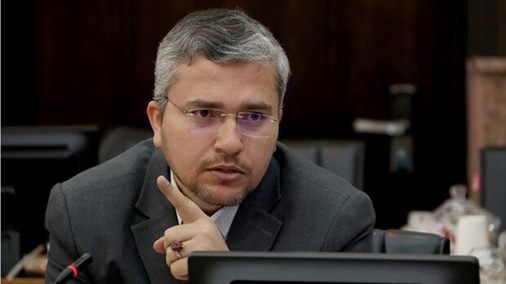BAKU, Azerbaijan, July 19. Iran can take adequate measures in case of implementation of the "snapback" mechanism, which will restore UN Security Council resolutions against Iran, by three European countries (the UK, France and Germany), Ebrahim Rezaei, spokesman for the National Security and Foreign Policy Committee of the Iranian parliament, told reporters, Trend reports.
According to him, European countries have practically shown no will to act independently after the US left the Joint Comprehensive Plan of Action. The failure of the "INSTEX" financial mechanism proposed by the European parties after the US left the mentioned agreement is also a clear proof of this.
"Experience shows that there is little benefit in holding discussions with the European side, and in practice, the European parties fully comply with US sanctions against Iran," he noted.
Rezaei pointed out that even if the "snapback" mechanism is implemented, there will be no significant change in the sanction's situation on Iran because the country is currently under the most severe international sanctions.
"Iran has so far voluntarily suspended the implementation of the additional protocol. Official Tehran is still a member of the Nuclear Non-Proliferation Treaty (NPT). However, if pressure continues, it may focus on leaving this agreement, enriching uranium to a level above 60 percent, producing and exporting modern centrifuges, and entering into broader cooperation in the nuclear field," he added.
On January 16, 2016, the JCPOA came into force between Iran and the P5+1 group (US, Russia, China, the UK, France, and Germany) regarding Iran’s nuclear program. However, on May 8, 2018, the US withdrew from the Joint Comprehensive Plan of Action (JCPOA) between Iran and the 5+1 group (Russia, China, the UK, France, the US, and Germany) and imposed new sanctions on Iran starting from November 2018. In 2020, Iran announced that it would no longer be bound by restrictions outlined in the nuclear agreement.
The “snapback” mechanism is based on Articles 36 and 37 of the Joint Comprehensive Plan of Action (JCPOA). According to these provisions, if one party complains that another has violated the agreement and resolution efforts fail, the issue can be brought before the United Nations Security Council (UNSC). If the UNSC accepts the complaint, international sanctions against Iran can be reinstated, and the Security Council members may authorize military operations against Iran.
Stay up-to-date with more news on Trend News Agency's WhatsApp channel







